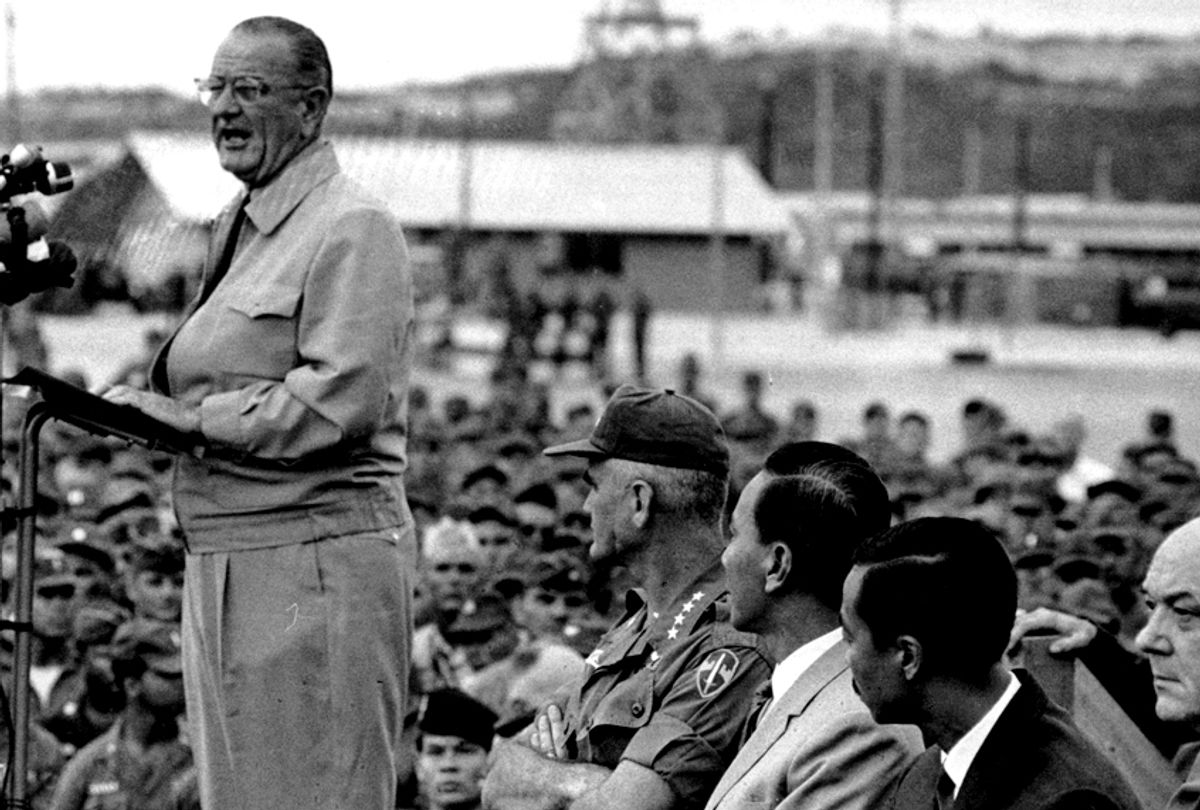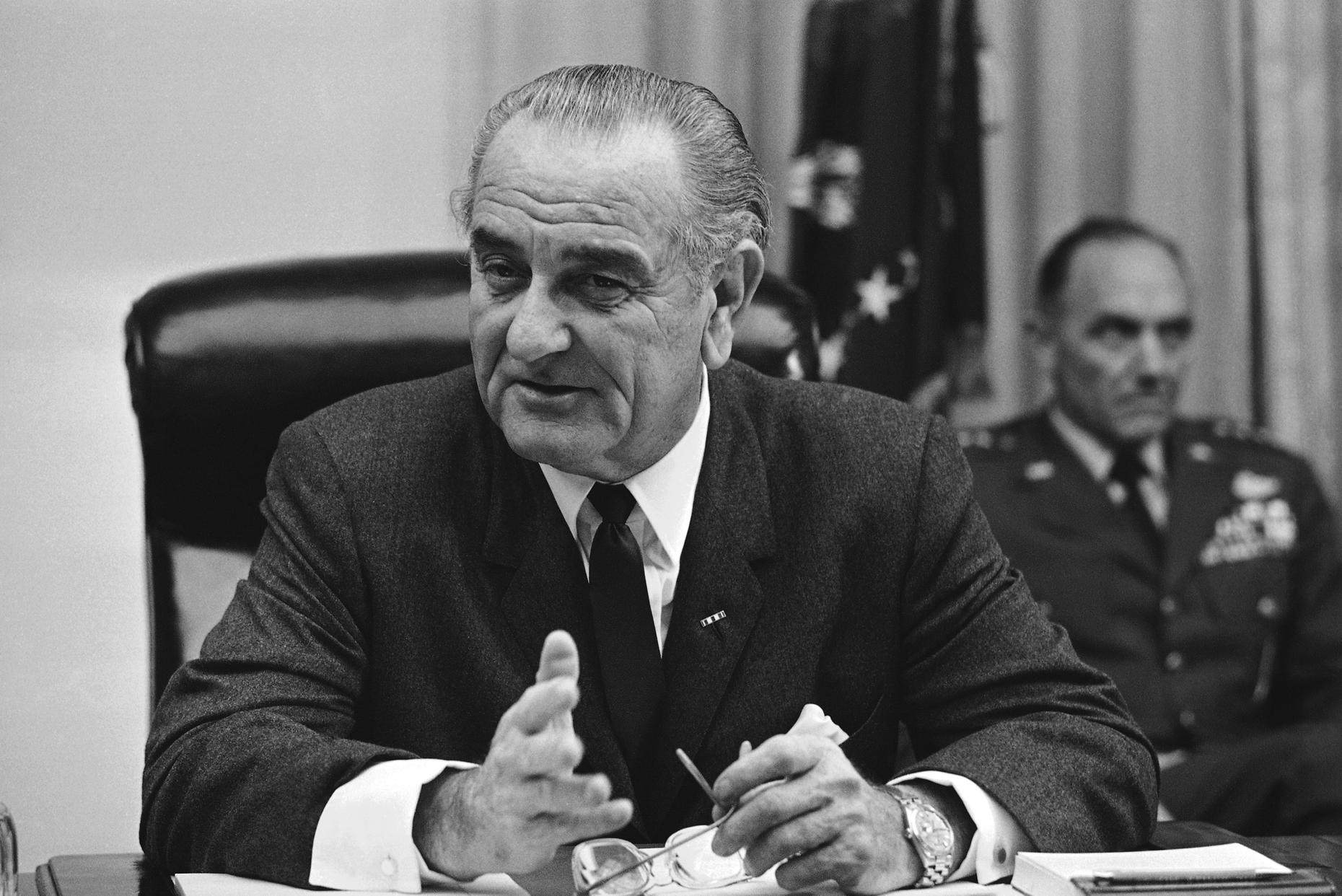
Welcome to the captivating journey through the life and legacy of **Lyndon B. Johnson**, the 36th President of the United States! Prepare yourself as we explore the various facets of his existence, from his early years in the modest surroundings of Texas to the prestigious corridors of the White House. Johnson’s narrative is not just one of personal ambition; it is also a tale of perseverance in the face of adversity and a commitment to enacting substantial change in American society. Throughout his presidency, he championed groundbreaking legislation that aimed to address civil rights, poverty, and education, leaving an indelible mark on the nation. Join us as we delve deeper into the complexities of his character, the challenges he faced, and the transformative impact he had on the United States during a tumultuous era in history.
Early Life: Roots in Texas

Born to Lead
Lyndon B. Johnson entered the world on August 27, 1908, in the picturesque Gillespie County, Texas. He was raised in a humble three-room house as the eldest of five siblings in a family that frequently grappled with financial difficulties. His father, Sam Ealy Johnson, Jr., was not only a businessman but also a dedicated member of the Texas House of Representatives, while his mother, Rebekah Baines Johnson, was a well-educated woman who played a crucial role in shaping his character. She instilled in him the importance of hard work, perseverance, and the value of education, principles that would guide him throughout his life.
Education and Early Career
Upon completing high school in 1924, Johnson explored a variety of odd jobs before deciding to further his education at Southwest Texas State Teachers College, which is now known as Texas State University. It was during his time at college that he unearthed his true passion for teaching, particularly while working at a predominantly Mexican American school in Cotulla, Texas. The stark reality of his students’ extreme poverty left a profound impact on him, significantly influencing his future political beliefs and aspirations. This experience not only deepened his understanding of social issues but also ignited a desire to advocate for change, setting the stage for his future endeavors in public service and leadership.
Political Ascent: From Congress to the Vice Presidency

First Steps in Politics
Johnson’s journey into the world of politics truly began in 1931 when he took on the role of legislative assistant to Congressman Richard Kleberg. This position marked the start of a significant chapter in his life, as he immersed himself in the intricacies of governmental operations and policy-making. His unwavering dedication and tireless work ethic quickly set him apart, earning him a solid reputation among his peers in Washington, D.C. By 1937, his efforts culminated in his election to the House of Representatives, where he would go on to serve for more than a decade, gaining invaluable experience and influence in the political arena.
Marriage to Lady Bird Johnson
In 1934, Johnson entered into a lifelong partnership when he married Claudia Alta Taylor, who was affectionately known as “Lady Bird.” Their marriage proved to be a pivotal aspect of his life, as Lady Bird became an essential source of support for him, both on a personal level and within the political sphere. Her remarkable intelligence and natural charm complemented Johnson’s dynamic and often larger-than-life personality. Together, they skillfully navigated the complexities and challenges of political life, forming a powerful partnership that would leave a lasting impact on American politics and society.
Senate Leadership: The Rise of “Landslide Lyndon”

Becoming a Senator
In the highly contested Senate race of 1948, Lyndon B. Johnson emerged victorious by a razor-thin margin, winning by a mere 87 votes. This narrow triumph earned him the memorable moniker of “Landslide Lyndon,” a title that would follow him throughout his political career. Johnson’s tenure in the Senate was characterized by his remarkable talent for negotiation and his ability to forge strong coalitions among his peers. These skills not only helped him navigate the complexities of legislative politics but also laid a solid foundation for his future presidency, where he would continue to employ these strategies to achieve his ambitious goals.
Majority Leader and Legislative Achievements
By the year 1955, Johnson had made history by becoming the youngest individual to hold the position of Majority Leader in the Senate. In this influential role, he was instrumental in the passage of several landmark pieces of legislation, particularly in the realm of civil rights, with significant measures being enacted in both 1957 and 1960. Johnson’s exceptional political acumen and strategic maneuvering established him as a dominant figure in American politics, allowing him to effectively rally support for his initiatives and navigate the often turbulent waters of legislative processes. His leadership during this period would have lasting implications for the nation and its legislative landscape.
Vice Presidency: A Challenging Role

Joining the Kennedy Administration
In 1960, Johnson was chosen as John F. Kennedy’s running mate. Although he was initially disappointed not to be the presidential nominee, he threw himself into the campaign. His presence was crucial in securing key states for Kennedy, ultimately leading to their victory.
Struggles in the Shadow of Camelot
As Vice President, Johnson often felt sidelined. Despite his extensive knowledge of Congress, he was given limited responsibilities. This frustration was compounded by the perception that he was not fully accepted by the Kennedy administration, particularly by Robert F. Kennedy.
Presidency: A Time of Change and Controversy

Assuming the Presidency
Following Kennedy’s assassination in November 1963, Johnson was sworn in as President. His immediate challenge was to unite a grieving nation while continuing Kennedy’s legacy. He famously declared, “Let us continue,” and set out to implement his vision for America.
The Great Society: A Vision for America
One of Johnson’s most ambitious initiatives was the Great Society, a series of programs aimed at eliminating poverty and racial injustice. Key achievements included the Civil Rights Act of 1964 and the Voting Rights Act of 1965, which were monumental in advancing civil rights in America.
Table: Key Legislation of the Great Society
| Legislation | Year | Impact |
|---|---|---|
| Civil Rights Act | 1964 | Prohibited discrimination based on race, color, religion, sex, or national origin. |
| Voting Rights Act | 1965 | Eliminated barriers to voting for African Americans. |
| Medicare and Medicaid | 1965 | Provided health insurance for the elderly and low-income individuals. |
| Elementary and Secondary Education Act | 1965 | Increased federal funding for education. |
Vietnam War: A Turning Point

Escalation of Conflict
While Johnson made significant strides in domestic policy, his presidency was marred by the Vietnam War. Initially, he escalated American involvement, believing it was necessary to prevent the spread of communism. However, as casualties rose, public opposition grew, leading to a deepening unpopularity.
The 1968 Presidential Election
By 1968, Johnson’s approval ratings plummeted due to the Vietnam War. Faced with mounting pressure and challenges from within his party, he made the surprising announcement that he would not seek re-election. This decision marked a significant turning point in American politics.
Legacy: A Complex Figure in History

Post-Presidency Life
After leaving office, Johnson returned to Texas, where he focused on his ranch and writing his memoirs. He remained a significant figure in American politics, often reflecting on his presidency and the challenges he faced.
Impact on American Society
Johnson’s legacy is a mixed bag. While he is celebrated for his civil rights achievements and the Great Society, the Vietnam War casts a long shadow over his presidency. His ability to enact change was undeniable, but the cost of that change was steep.

Lyndon B. Johnson was a man of contradictions. His life was a testament to the complexities of American politics and the struggle for social justice. Whether you admire him for his bold initiatives or criticize him for the Vietnam War, there’s no denying that his impact on the United States is profound and lasting.
So, what do you think? Was Johnson a champion of civil rights or a flawed leader? The debate continues, but one thing is clear: his story is an essential chapter in the American narrative.

